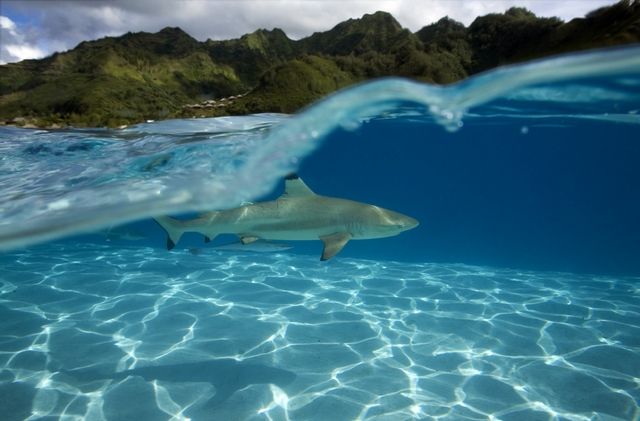The Bahamas, with its pristine beaches, crystal-clear waters, and vibrant marine life, is a tropical paradise that beckons travelers from around the world. As you plan your visit to this stunning archipelago, you may wonder about the presence of sharks in Bahamian waters. In this comprehensive guide, we will delve into the topic of sharks in the Bahamas, providing you with all the information you need to know about these fascinating creatures. From shark species diversity to popular shark diving sites, we’ll unravel the mysteries surrounding sharks in the Bahamas. Let’s dive in and explore the captivating world of these apex predators!
Section 1: Understanding Sharks and Their Importance
1.1 The Diversity of Shark Species:
Sharks are a diverse group of cartilaginous fish that have inhabited the world’s oceans for millions of years. With over 500 known species, sharks exhibit a wide range of sizes, shapes, and behaviors, making them a crucial component of marine ecosystems.
1.2 The Ecological Role of Sharks:
As apex predators, they regulate the populations of other species and help preserve the overall biodiversity of the ocean.
1.3 Shark Conservation Efforts:
Due to the threats they face, including overfishing and habitat destruction, many shark species are in decline. Conservation efforts are crucial to protect these magnificent creatures and maintain the ecological integrity of marine environments.
Section 2: Shark Species in the Bahamas
2.1 Shark Species Diversity:
The Bahamas is home to a remarkable diversity of shark species, attracting shark enthusiasts and researchers from around the world. Over 40 species of sharks have been identified in Bahamian waters, ranging from small reef sharks to large, pelagic species.
2.2 Nurse Sharks:
One of the most commonly encountered sharks in the Bahamas is the nurse shark. These docile sharks are often found resting on the sandy bottoms of shallow coastal areas, making them a popular sight for snorkelers and divers.
2.3 Caribbean Reef Sharks:
Caribbean reef sharks are another species commonly seen in the Bahamas. They inhabit the coral reefs and offer thrilling encounters for divers seeking to observe these sleek and powerful predators up close.
2.4 Tiger Sharks:
Tiger sharks, known for their distinctive stripes and formidable size, are occasionally encountered in the Bahamas. These apex predators roam the open ocean and can be observed during certain times and in specific locations.
2.5 Great Hammerhead Sharks:
The Bahamas is known as one of the best places in the world to observe great hammerhead sharks. These magnificent creatures, with their iconic hammer-shaped heads, frequent the shallows around Bimini and other areas, making them a sought-after species for divers and researchers.
Section 3: Shark Diving and Snorkeling in the Bahamas
3.1 Shark Diving Hotspots:
The Bahamas offers numerous opportunities for shark diving and snorkeling experiences. Some of the popular hotspots include Tiger Beach, a renowned site for tiger shark encounters, and the waters around Bimini, where great hammerhead sharks can be found.
3.2 Diving Guidelines and Safety:
When participating in shark diving or snorkeling activities, it is essential to follow established guidelines and safety protocols. Respect for the sharks and their environment is paramount to ensure both a thrilling experience and the well-being of these magnificent creatures.
3.3 Conservation-Oriented Shark Tourism:
Many shark diving operators in the Bahamas are committed to conservation-oriented practices. They prioritize the well-being of the sharks, adhere to responsible diving guidelines, and support research efforts to further our understanding of these incredible apex predators.
Section 4: Shark Research and Conservation in the Bahamas
4.1 Shark Research Initiatives:
The Bahamas has been a hub for shark research, attracting scientists and organizations dedicated to studying these captivating creatures. Research initiatives focus on population monitoring, behavior studies, and the implementation of conservation measures to protect sharks and their habitats.
4.2 The Bahamas Shark Sanctuary:
To safeguard its shark populations, the government of the Bahamas established the Bahamas Shark Sanctuary in 2011. This sanctuary prohibits the commercial fishing, sale, and possession of sharks and promotes sustainable shark tourism.
4.3 Public Perception and Education:
Educating the public about the importance of sharks and dispelling misconceptions is crucial for their conservation. Various organizations in the Bahamas conduct educational outreach programs to foster understanding and appreciation for these apex predators.
Section 5: Shark Safety and Tips for Ocean Enthusiasts
5.1 Shark Safety Guidelines:
While sharks are generally not a threat to humans, it is essential to adhere to basic safety guidelines when swimming or snorkeling in the ocean. Avoid excessive splashing, refrain from wearing shiny objects, and respect the sharks’ space to minimize any potential risks.
5.2 Responsible Ocean Practices:
When engaging in water activities, it is important to adopt responsible ocean practices. This includes avoiding the harassment or feeding of sharks, refraining from damaging coral reefs, and practicing proper waste management to protect marine ecosystems.
5.3 Supporting Shark Conservation:
You can contribute to shark conservation efforts by supporting organizations dedicated to their protection. Donations, volunteering, and participating in citizen science initiatives can make a positive impact on the preservation of these magnificent creatures.



